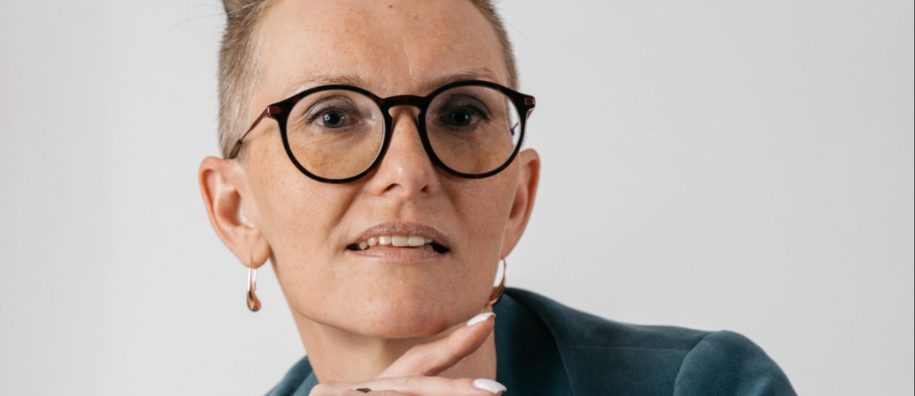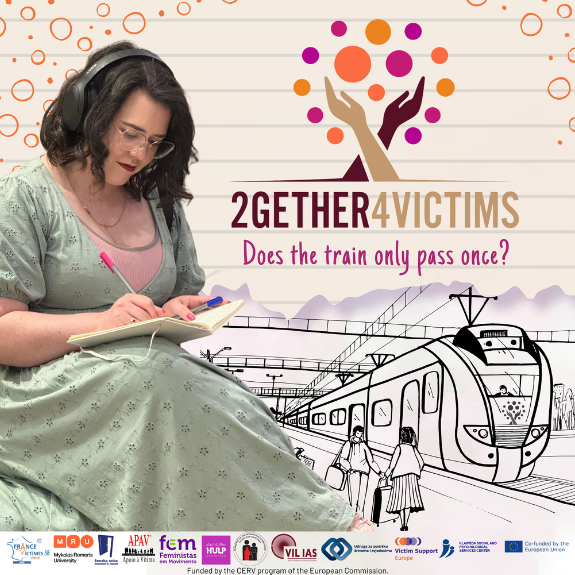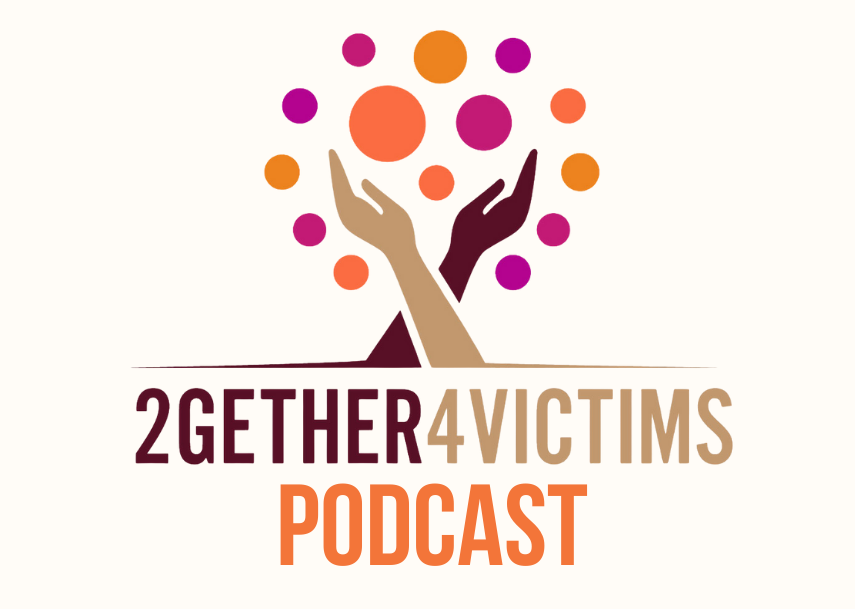
The most dangerous place for a woman is often not the street, but her own home. The facts speak for themselves: 1 in 3 women aged 15 and over in the European Union has experienced physical, sexual, or psychological gender-based and domestic violence. Although specialized support services exist in most countries, they are often poorly coordinated, resulting in fragmented assistance and limited opportunities for recovery. The COVID-19 pandemic has only exacerbated these problems. As a result, victims of violence may feel that there is little chance of escaping the cycle of pain.
2Gether4Victims – journey to freedom
"Does the train only pass once?" is the title of a new twelve-part podcast that invites listeners to join Ana, a woman who has experienced domestic violence, on her journey. The train journey becomes a metaphor for stepping out out of the past and moving forward with courage.
Together with Ana, the imaginary train stops in Belgium, Croatia, the Netherlands, Cyprus, France, Portugal, and Lithuania. Here the local experts are interviewed about the myths and stereotypes how domestic violence are explored. The stories are told about the lives of victims after experiencing violence, the power of communities and support networks, the needs of older people, and the creation of a safer working environment.
The podcast "Does the Train Only Pass Once?" was created as part of the three-year international project "2Gether4Victims," coordinated by Victim Support Europe (VSE). This is the largest network in Europe, bringing together more than 60 organizations that help victims of violence. Operating for 35 years, VSE seeks not only to provide practical support, but also to change public attitudes, break stereotypes about victims, and contribute to meaningful policy decisions.
VSE Deputy Director Aleksandra Ivankovic emphasizes that gender-based violence is not just a personal tragedy—it is a violation of human rights rooted in systemic inequality.
MRU's voice in the international arena
Researchers from Mykolas Romeris University (MRU) have also joined the 2Gether4Victims project, funded by the CERV program of the European Commission.
The project manager in Lithuania, dr. Ramunė Jakštienė, will talk about stereotypes that often prevent victims from seeking help in the second series of the podcast, which will be released on September 22.
"It is often believed that violence is always physical, that it is related to alcohol, or that if the situation were really bad, the victim would have left. Such beliefs are false and dangerous," says the researcher. She will explain why support measures need to be tailored to different groups: men, women, transgender and LGBT people.
"I see an opportunity to reach a wider audience and expand contacts with strong organizations that seek to improve services for victims. Changes are happening in small steps, but they are visible even in the regions of Lithuania. The podcast is becoming an educational tool and a bridge of support for victims of sexual violence across Europe," shares dr. R. Jakštienė.
We invite you to join the change
The first six episodes of the podcast will be released in the fall of 2025, with the rest following in early 2026. Listen to the podcast on Spotify, YouTube Podcast, and the project website. We invite you not only to listen, but also to share—every voice, every conversation can be a step toward creating a safer society, and empathetic help can bring real change to the lives of victims.
|
|
|

